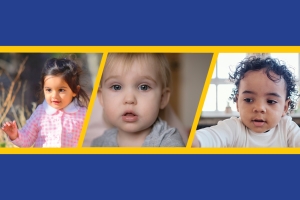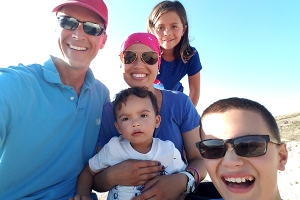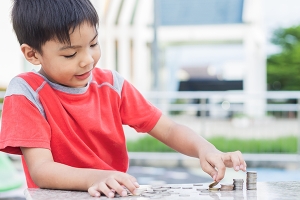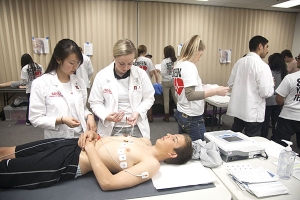
Even before the pandemic began, mental health challenges among kids and teens were on the rise. In the last year and a half, they have skyrocketed. According to a recent joint declaration from the American Academy of Pediatrics, American Academy of Child and Adolescent Psychiatry and Children’s Hospital Association, “We are caring for young people with soaring rates of depression, anxiety, trauma, loneliness, and suicidality that will have lasting impacts on them, their families, and their communities.”
Here is what to do if a mental health issue is suspected, warning signs to watch for, why it’s important (for kids) that parents do self-checks and where to find help.
What to Do if You Suspect a Mental Health Issue
When children experience mental health challenges, they often exhibit unusual behaviors. For example, your child may throw frequent tantrums or become generally more irritable and withdrawn. Many kids and teens experience changes in sleep patterns or avoid activities they used to enjoy; some begin to struggle socially or academically. Additional signs can include physical symptoms like stomachaches or headaches, self-harming behaviors like cutting or burning, disordered eating or excessive exercise and thoughts of suicide.
“The average time between the onset of symptoms and treatment is 10–13 years,” says Cathryn Nacario, chief executive officer of National Alliance on Mental Illness (NAMI) San Diego & Imperial Counties. “The first signs of mental health challenges typically occur in late adolescence, but the child is often afraid to say something or just doesn't know what is going on. We encourage parents to have open dialogue with their children about mental health so symptoms can be identified early, allowing for proactive intervention and treatment, which leads to much greater success.”
One of the most difficult things for parents may be starting the conversation with kids. Many experts suggest communicating in a straightforward manner, speaking at an age-appropriate level, choosing discussion times when your child feels safe and comfortable, taking cues from their reactions on when to slow down or back off, and listening openly to their thoughts, feelings and concerns.
If you suspect your child is suffering from a mental health condition, try reaching out to their doctor, school nurse, other medical providers, and the school counselor to learn more about your child’s behaviors, what may be causing them, and what treatment options are available. Make sure to ask whether consulting a child behavioral specialist would be beneficial. For additional support, NAMI offers a peer and family helpline at 800-523-5933 and related information at www.namisandiego.org.
You can also keep practical resources on hand to obtain immediate support during a crisis. Have your children save emergency contacts on their phones, including:
- Phone numbers for trusted friends or relatives
- The Crisis Text Line: 741741
- The National Suicide Prevention Lifeline: 1-800-273-TALK (8255)
- San Diego Access and Crisis Line: 888-724-7240
Checking Your Own Mental Health
According to the Centers for Disease Control (CDC), mental health in children is strongly connected to their parents and other caregivers. With that in mind, it may be a good idea to perform regular self-checks on your own mental health status. Some parents are surprised to learn that some of their own symptoms and behaviors are contributing to their child’s challenges.
Warning signs and symptoms for mental health challenges in adults can include excessive worry or fear, extreme mood changes, changes in sleep patterns, and overuse of alcohol or drugs. Some organizations offer convenient mental health assessments online; however, these should not be used in place of medical evaluation.
Along with getting help for yourself or other family members, don’t overlook the importance of self-care. Nearly everyone can benefit from connecting more with others, getting outside for walks, turning off electronics when possible, eating a healthy diet, practicing good sleep hygiene and participating in activities they enjoy.
Warning Signs and Symptoms of Mental Illness in Children and Teens
The National Institute of Mental Health (NIMH) provides the following information on signs and symptoms to look for, broken down by age group:
Young children may benefit from an evaluation and treatment if they:
- Have frequent tantrums or are intensely irritable much of the time
- Often talk about fears or worries
- Complain about frequent stomachaches or headaches with no known medical cause
- Are in constant motion and cannot sit quietly (except when they are watching videos or playing videogames)
- Sleep too much or too little, have frequent nightmares, or seem sleepy during the day
- Are not interested in playing with other children or have difficulty making friends
- Struggle academically or have experienced a recent decline in grades
- Repeat actions or check things many times out of fear that something bad may happen.
Older children and adolescents may benefit from an evaluation if they:
- Have lost interest in things they used to enjoy
- Have low energy
- Sleep too much or too little, or seem sleepy throughout the day
- Are spending more and more time alone and avoid social activities with friends or family
- Diet or exercise excessively, or fear gaining weight
- Engage in self-harm behaviors (such as cutting or burning their skin)
- Smoke, drink alcohol or use drugs
- Engage in risky or destructive behavior alone or with friends
- Have thoughts of suicide
- Have periods of highly elevated energy and activity, and require much less sleep than usual
- Say that someone is trying to control their mind or that they hear things other people cannot hear.
If you, your child, or someone you know is in immediate crisis, please contact the National Suicide Prevention Lifeline at 1-800-273-TALK (8255) or the Crisis Text Line at 741741.
More Mental Health Support Resources
US Department of Health and Human Services
www.mentalhealth.gov/talk/parents-caregivers
Centers for Disease Control and Prevention (CDC)
www.cdc.gov/childrensmentalhealth/features/mental-health-children-and-parents.html
National Alliance on Mental Illness (NAMI) San Diego
www.namisandiego.org
San Diego Health and Human Services (HHSA) “It’s Up to Us” Campaign
www.up2sd.org
Take an Online Mental Health Screening
https://screening.mhanational.org/screening-tools
Lisa Pawlak is an award-winning contributing writer living in Encinitas with her family.

This article won a journalism award from San Diego Press Club! Lisa Pawlak received SECOND Place in the Health & Medicine category. See all of San Diego Family's awards HERE.
______________



















